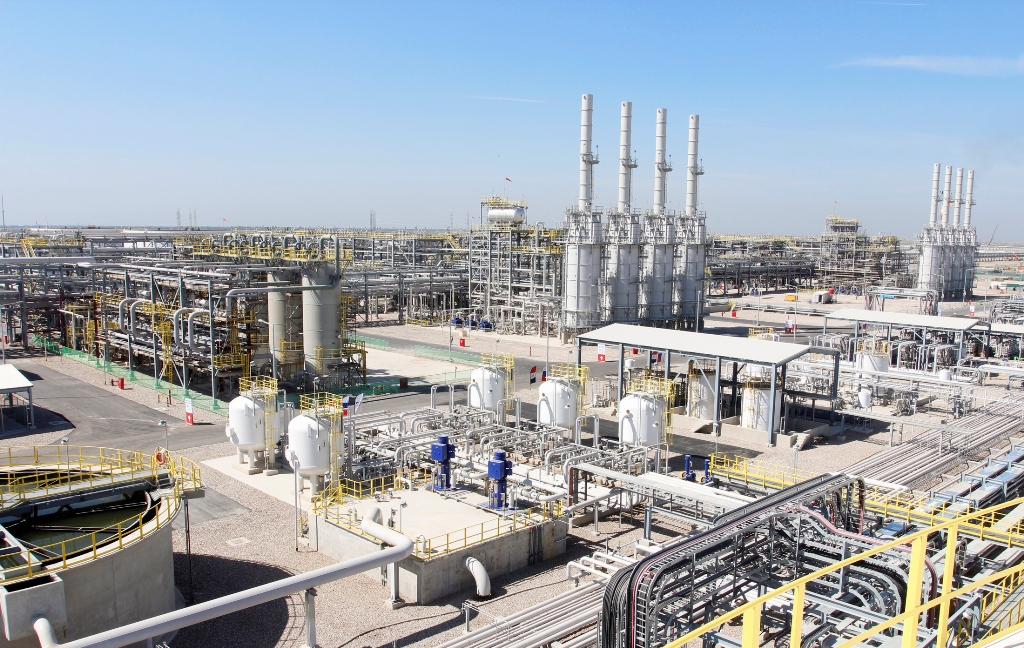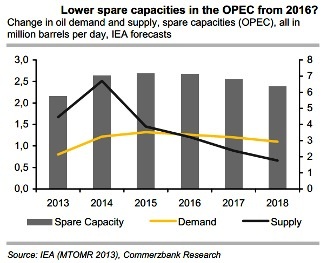
A view of West Qurna oilfield is seen in Basra, southeast of Baghdad.Reuters
Oil futures rose on 13 June, and added 4% for the week, amid rising political tensions and violence in Iraq, where civilians are volunteering to join the ongoing fight against Isis militants who are making rapid advances.
A long-drawn-out crisis could hit supplies from Opec-member Iraq.
August Brent contract finished four cents higher at $112.46.
July Brent contract finished 39 cents, or 0.4%, higher at $113.41 a barrel on 13 June. The contract expired on Friday.
Both contracts gained some 4% for the week as a whole.
July US contract finished 38 cents, or 0.4%, higher at $106.91 a barrel on 13 June.
Prices gained 4.1% for the week.
Capital Economics said in a 13 June note to clients: "The immediate risks from the fighting in the north are limited, as Iraq's oil industry is concentrated in the south and in the autonomous Kurdish region. Of course, this is yet another reminder of the instability across the Middle East in the wake of the "Arab Spring". This in turn is the most important reason why the cost of a barrel of Brent crude has averaged $110 since 2011. Nonetheless, the current price (of around $113) is still not far above that average, so the latest spike is not that significant in itself.
"Admittedly, vague warnings of US intervention might signal the risk of further contagion. But it is surely unlikely that the West would want to become embroiled again, given the recent disengagements (from Afghanistan and Iraq itself) and inaction elsewhere (from Syria to Ukraine). More likely, the West would write off Iraqi production for an extended period, seeking instead to offset any shortfall in supply from other sources, and if necessary by releases from ample strategic reserves."
"We will not therefore be revising our oil price forecasts in the light of the latest events alone, although our current view that Brent will drop back below $100 by year-end is clearly looking even more of a stretch," Capital added.

Iraqi oil.Bloomberg, Commerzbank Research
Commerzbank Corporates & Markets said in a 13 June note: "...Indeed, the risk premium is rising amid the unrest in the north of Iraq. While crude oil exports from this region are markedly lower than exports from the south of the country, even in normal times, at almost 500,000 barrels a day compared with about 2.5 million barrels (and are zero in any case at present), the pace with which militant Islamists are occupying new regions of the country is worrying."
"Iraq's second-biggest city Mosul has been seized. This Islamist offensive could endanger the recent rapid rise of Iraqi oil production. In February, the country's oil production climbed to 3.6 million barrels a day thanks to new production facilities in the south of Iraq, this being the highest output level since 1979 according to International Energy Agency data (IEA).

Opec oil.Commerzbank Research
"Consequently, Iraq is a beacon of hope among OPEC countries.[In 2013], the IEA expected the production to expand by almost 1.6 million barrels a day through 2018. Its latest estimate of the medium-term supply and demand outlook to 2019 will be released [on 17 June].
"It will be interesting to see whether production in the USA is viewed even more optimistically and what feedback effects are expected on supply and demand. Up to now, the IEA has expected global production capacity to rise at a stronger rate than demand through 2015 and OPEC capacity to only pick up again from 2016," Commerzbank added.